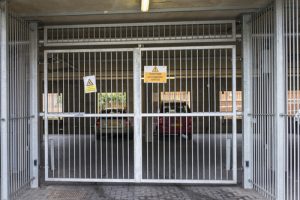 Automatic gate accidents in Los Angeles can cause serious injuries or deaths. In these types of cases, there are several parties that might be liable. The property owners or lessors may be responsible if they negligently retain or repair the gates or if the knew or should have known about an existing defect and failed to repair it. If the automatic gate failed because of a defective part, the part’s manufacturer may be liable to pay damages. Finally, people who are injured in gate accidents may also share liability. In Park v. Oh, Los Angeles Superior Court Case No. BC569323, the plaintiff and the property owner shared liability.
Automatic gate accidents in Los Angeles can cause serious injuries or deaths. In these types of cases, there are several parties that might be liable. The property owners or lessors may be responsible if they negligently retain or repair the gates or if the knew or should have known about an existing defect and failed to repair it. If the automatic gate failed because of a defective part, the part’s manufacturer may be liable to pay damages. Finally, people who are injured in gate accidents may also share liability. In Park v. Oh, Los Angeles Superior Court Case No. BC569323, the plaintiff and the property owner shared liability.
Factual background of the case
Around 4:30 p.m. on Nov. 13, 2013, Chon Ho Park drove down the driveway of his apartment complex. As he drew near to an automatic gate, he noticed that it was working improperly. Oh watched the gate as it opened and closed multiple times and called his landlord to ask what he should do. His landlord told him to turn the switch on the automatic gate to the off position so that the landlord could inspect it later on during the day. Park looked for the switch but could not see it. He walked around to the outside of the gate to look for it. The switch was located inside of the motor’s exterior plastic housing. While Park stayed on the phone with his landlord, he reached through some metal bars in order to try to turn the switch off. When he did, the gate closed on his wrist and arm, breaking them. Park filed a lawsuit against his landlord alleging that the landlord had negligently maintained the gate.
 California Accident Attorneys Blog
California Accident Attorneys Blog


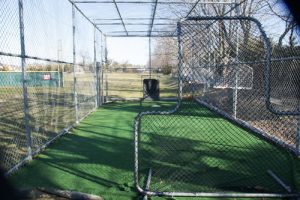 Property owners and operators in California owe duties of care to protect people who are legally present on their properties from dangerous conditions. Property owners must either know about the existence of the hazardous condition or should know about it for liability to attach. They must take steps to correct hazards about which they know or should have known and to warn visitors to their property about their existence. In Lefebvre v. NC Valley Baseball, LLC, Stanislaus County Superior Court No. 2019247, the court considered the concepts of notice and of assumption of the risk in a case involving a man who was injured at a batting cage by a baseball.
Property owners and operators in California owe duties of care to protect people who are legally present on their properties from dangerous conditions. Property owners must either know about the existence of the hazardous condition or should know about it for liability to attach. They must take steps to correct hazards about which they know or should have known and to warn visitors to their property about their existence. In Lefebvre v. NC Valley Baseball, LLC, Stanislaus County Superior Court No. 2019247, the court considered the concepts of notice and of assumption of the risk in a case involving a man who was injured at a batting cage by a baseball.
 When visitors to the properties of others are injured in California, they may be able to recover damages by holding the property owners liable in a premises liability lawsuit. However, it is important for people to note that just because they might be injured by a dangerous condition that exists on the property does not necessarily mean that they will be able to recover damages. In Jacobs v. Coldwell Banker Residential Brokerage Company,2d Civil No. B277832, the court found that victims who are injured in accidents that are unforeseeable are not able to hold the defendants liable under a theory of premises liability.
When visitors to the properties of others are injured in California, they may be able to recover damages by holding the property owners liable in a premises liability lawsuit. However, it is important for people to note that just because they might be injured by a dangerous condition that exists on the property does not necessarily mean that they will be able to recover damages. In Jacobs v. Coldwell Banker Residential Brokerage Company,2d Civil No. B277832, the court found that victims who are injured in accidents that are unforeseeable are not able to hold the defendants liable under a theory of premises liability.
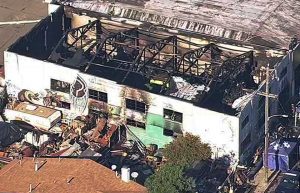 The tragic Ghost Ship warehouse fire in Oakland, California resulted in the deaths of 36 people. The warehouse had been illegally converted into living and working spaces for artists, and the victims of the fire died during a music concert that was being held in the building. The fire demonstrates the problems that can happen when buildings are used for purposes for which they were not intended. Unfortunately, the high real estate prices and rents in cities such as San Francisco, Oakland and Los Angeles has contributed to people using these spaces to work and live even though the buildings are not intended for doing so. Experienced personal injury attorneys may hold the landowners liable by filing lawsuits against them, helping to deter the negligent conduct even when code enforcement may be difficult.
The tragic Ghost Ship warehouse fire in Oakland, California resulted in the deaths of 36 people. The warehouse had been illegally converted into living and working spaces for artists, and the victims of the fire died during a music concert that was being held in the building. The fire demonstrates the problems that can happen when buildings are used for purposes for which they were not intended. Unfortunately, the high real estate prices and rents in cities such as San Francisco, Oakland and Los Angeles has contributed to people using these spaces to work and live even though the buildings are not intended for doing so. Experienced personal injury attorneys may hold the landowners liable by filing lawsuits against them, helping to deter the negligent conduct even when code enforcement may be difficult.
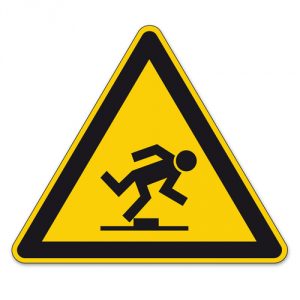 A recent California case involving a woman who was injured when she tripped over an unattended ladder in Target demonstrates both the business’s knowledge requirement as well as its duty to remove hazards, keeping the premises reasonably safe. In the case, an 83-year-old woman tripped over the ladder, fracturing her hip.
A recent California case involving a woman who was injured when she tripped over an unattended ladder in Target demonstrates both the business’s knowledge requirement as well as its duty to remove hazards, keeping the premises reasonably safe. In the case, an 83-year-old woman tripped over the ladder, fracturing her hip.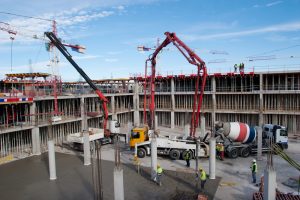 A recent construction site accident wrongful death Los Angeles County case and jury verdict illustrate several important topics, including cases in which several parties share liability in causing workplace accidents, workers’ compensation and the liability of third parties in workplace accidents. The case (Rosa Gonzalez, et.al. v. Atlas Construction Supply – L.A. Superior Court Case No. BC 507755) involved a man who was killed while working on a construction site in 2011.
A recent construction site accident wrongful death Los Angeles County case and jury verdict illustrate several important topics, including cases in which several parties share liability in causing workplace accidents, workers’ compensation and the liability of third parties in workplace accidents. The case (Rosa Gonzalez, et.al. v. Atlas Construction Supply – L.A. Superior Court Case No. BC 507755) involved a man who was killed while working on a construction site in 2011. A recent case in California demonstrates how the extent and cause of a plaintiff’s injuries may be disputed even when liability itself is not in dispute. In the case, Plent v. Anheuser-Busch, LLC, Los Angeles Superior Court /
A recent case in California demonstrates how the extent and cause of a plaintiff’s injuries may be disputed even when liability itself is not in dispute. In the case, Plent v. Anheuser-Busch, LLC, Los Angeles Superior Court /